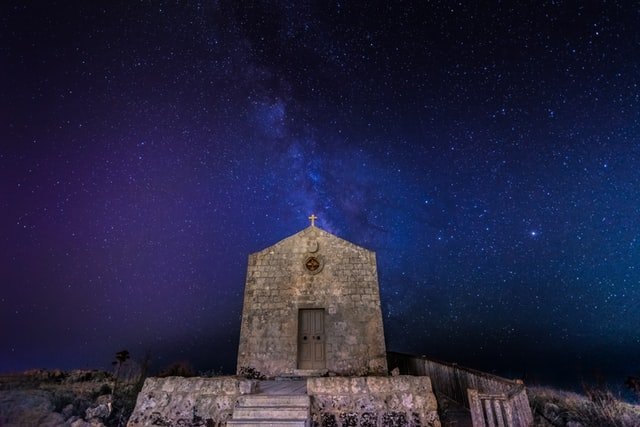Can you walk a pilgrimage if you're not religious?
Maybe you feel called to go on a meaningful journey in search of personal answers to life’s bigger questions. You’re ready to challenge yourself physically and long for change in your life. The Camino (or a similar journey) may be calling you. But then the question comes up: Am I even allowed to walk a pilgrimage if I’m not religious? Or maybe you’re asking: Why would I want to walk a religious pilgrimage? I’m not Christian (or Buddhist, or *insert major religion here*).
You don’t have to be religious to walk a pilgrimage. There are other requirements, yes, but religious devotion is not one of them.
In this article, I’m going to define pilgrimage from its origin to now. Next, I’ll give a list of examples of pilgrimages around the world. Finally, we'll go over examples of why someone may decide to walk a pilgrimage.
Spiritual Pilgrimage
What is pilgrimage?
Pilgrimage can be described in many ways. Here are a few definitions:
A journey back to yourself
A trip, often into an unknown or foreign place, where a person goes in search of new or expanded meaning about their self, others, nature, or a higher good, through the experience
Any journey with a deep purpose, where the traveler leaves behind the familiar to discover sacred truths
The soul's journey - traveled slowly with intentionality
Pilgrimage then: walking to religious relics and shrines
Pilgrimage has been around for as long as humans have been around to make meaning of their lives. In fact, this ancient practice is seen in almost all cultures and religions.
The English word 'pilgrim' comes from the Latin word peregrinus. 'Per' meaning 'through' and 'ager' meaning 'country' or 'land'. In Greek, the word for pilgrim is parepidemos, meaning 'temporary resident'. In Hebrew, it translates to 'sojourner'.
Regardless of culture or religion, pilgrims set forth on an inner and outer journey, often with the hopes of finding something sacred. Religious pilgrimages lead to holy places like a shrine or religious relics.
For the Camino de Santiago, pilgrims walk to the relics of Saint James' relics in Santiago de Compostela, Spain. The Camino gained popularity in the Middle Ages, and now, around 50% of pilgrims walk for spiritual reasons instead of religious.
Church
Pilgrimage now: the shift to spiritual pilgrimage
The meaning of pilgrimage has shifted over the last decade. Nowadays, the journey is the destination.
To begin with, walking is the slowest form of travel. When one slows down enough, they begin to tune in with a life almost forgotten. Long gone are the stresses of modern life. No deadlines, notifications, or need to rush. Instead, what is left is the utter simplicity of life. Gratitude for a cold drink on a hot day, sharing a laugh with a new friend, or taking in a sunrise as if it's the first one you've ever seen.
Step by step, pilgrims are able to absorb their surroundings and appreciate life as it is – in the here and now. It’s a relief, really!
Modern pilgrims see pilgrimage as a certain walking meditation. Insights and creativity naturally flows while your legs move rhythmically. Also, pilgrims report that many memories arise as they give themselves space to feel and process. Additionally, soul-nourishinghealing, reconnection with nature, self discovery, and life-long companionship are all a part of pilgrimage.
Church in Malta
5 Established pilgrimages around the world
Camino de Santiago (Spain and Portugal)
St. Olav Ways (Norway)
The Abrahamic Path (Middle East)
Kumano Kodo (Japan)
The Way of St. Andrews (Scotland)
Read this article to discover more pilgrimages around the world
Why walk a pilgrimage?
You’re in a transitional place in your life
Experience transformational travel
Challenge yourself
To represent a symbolic change in your life or a fresh new start
Heal from loss
Discover purpose in your life
Learn about yourself and the world
Visit or revisit a place that holds personal meaning to you
To practice mindfulness
And much more! You can find your reason along the way
compass
Conclusion
To most, the word 'pilgrimage' conjures up images of the Mecca or grand cathedrals. While it's true that the background of this ancient tradition is steeped in religious history, the meaning of pilgrimage has evolved.
The practice of walking to find meaning is the simplest, most profound act that one can do to see life in a fresh, new way. If you hear the calling, listen to it. Feel the excitement of possibility in your very bones, and get ready for the journey of a lifetime. It will change your life, that much is guaranteed!



